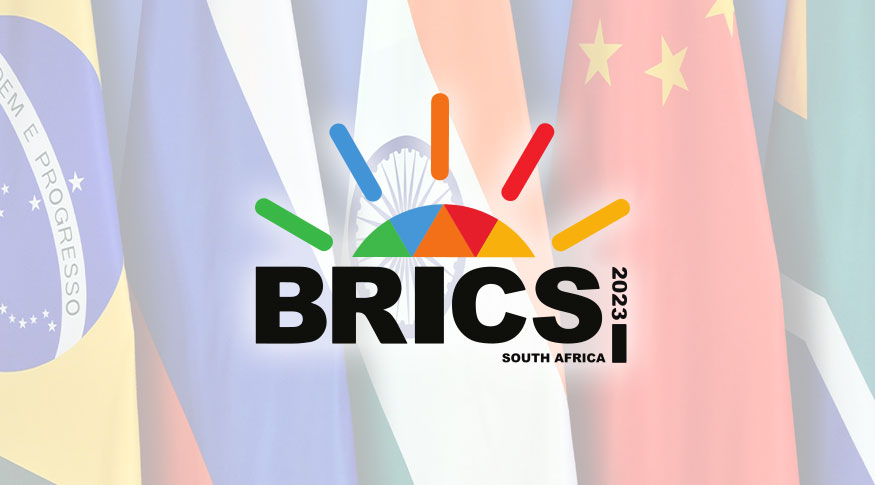IBGE participates in BRICS meeting on population
October 23, 2023 01h38 PM | Last Updated: October 24, 2023 11h30 AM

Between September 12 and 15 this year, South Africa hosted the 8th BRICS Meeting of Senior Officials and Experts on Population. Held in Durban, the meeting included five thematic sessions: drivers of demographic changes, including education and health, and reproductive and sexual rights; demographic dividend; youth development - experiences and perspectives; gender equality and women empowerment; migration; and population ageing. Izabel Marri, IBGE manager of Studies and Analyses of Demographic Dynamics, participated remotely in the last session.
Created in 2009, BRICS is a partnership involving some of the major emerging economies in the world. Comprising Brazil, Russia, India, China and South Africa, the group´s main goal is the economic cooperation and jointly development of its members. During the 15th Meeting of the BRICS Summit in August, six more countries were invited to integrate the block from 2024 onwards: Argentina, Egypt, Iran, Ethiopia, Saudi Arabia and United Arab Emirates.
In the opening session, Jacques van Zuydam, director of the Department of Population and Development of the South Africa´s Ministry of Social Development, highlighted the importance of the meeting´s theme for the advance of issues related to sustainable development. Commenting on the ministerial meeting on population held in Brazil in 2015, he considered the meeting an opportunity to assess the progress reached since then, as well as to foster the cooperation and change of experiences in this area.
In the discussion on the drivers of demographic changes, including education and health, and reproductive and sexual rights, India highlighted the importance of education to empower people in relation to their choices in life. On the other hand, Russia presented its policies to foster natality, highlighting the pilot project on “reproductive health”, which includes, among its objectives, “to increase the importance of family values in the society.” On its turn, South Africa emphasized the large proportion of children and youngsters up to 34 years in its overall population (62%).
Concerning the demographic dividend, Russia pointed out the decrease in the young population in the country, due to ageing and emigration, especially of skilled youngsters. The average age of the Indian population is 28 years, with 34% of Indians in the age group between 15 and 34 years. Provided that investments are made in education and that employment is promoted, there is a potential for economic growth. South Africa also has a very young population, with 36% of its inhabitants between 15 and 34 years. Nevertheless, the perspectives for this demographic group are discouraging, with an unemployment of 53% against 32.6% in the national average.
Whenever the issue is gender equality, India considers health as the key factor to reach this goal. India presented the “One Stop Center” program, aimed at the integrated assistance against domestic violence, including medical, legal and psychological support, as well as counseling. Once again, Russia highlighted programs associated with families. The South-African delegation showed the legislation in force in the country, highlighting the perspective of approving specific laws aiming at gender equality and women empowerment.
In terms of migration, Russia stated that foreign workers do not represent a critical contingent in any sector of its economy. According to Indian authorities, this issue is linked with the Sustainable Development Goals (SDGs), mainly in relation to labor and mobility. South Africa, in turn, reported that migratory pressure is linked, with a higher degree, with economic aspects.
Lastly, the session on population ageing discussed the concept of “dependency ratio” and the need of investments in a growing population contingent with specific demands. The Brazilian participation warned about the trend of proportional increase of the elderly population in the country, at the same time that it questioned the conception that this age group is a “burden” to the society, as it can otherwise contribute effectively through labor and consumption. On the other hand, the increase in the expenditures with health would cause a debate concerning the best framework to address funding needs.
In the closing session, Lindiwe Zulu, South Africa minister of Social Development, reiterated that population development is the reflection of governmental policies, at the same time bringing opportunities and challenges. In this context, the continuous engagement in the cooperation in the population area is key.
The 8th BRICS Meeting of Senior Officials and Experts on Population produced a resolution reinforcing the commitment of its members to follow up the cooperation in the area of population. The next BRICS meeting to discuss this theme is scheduled for 2024 in Russia.




















